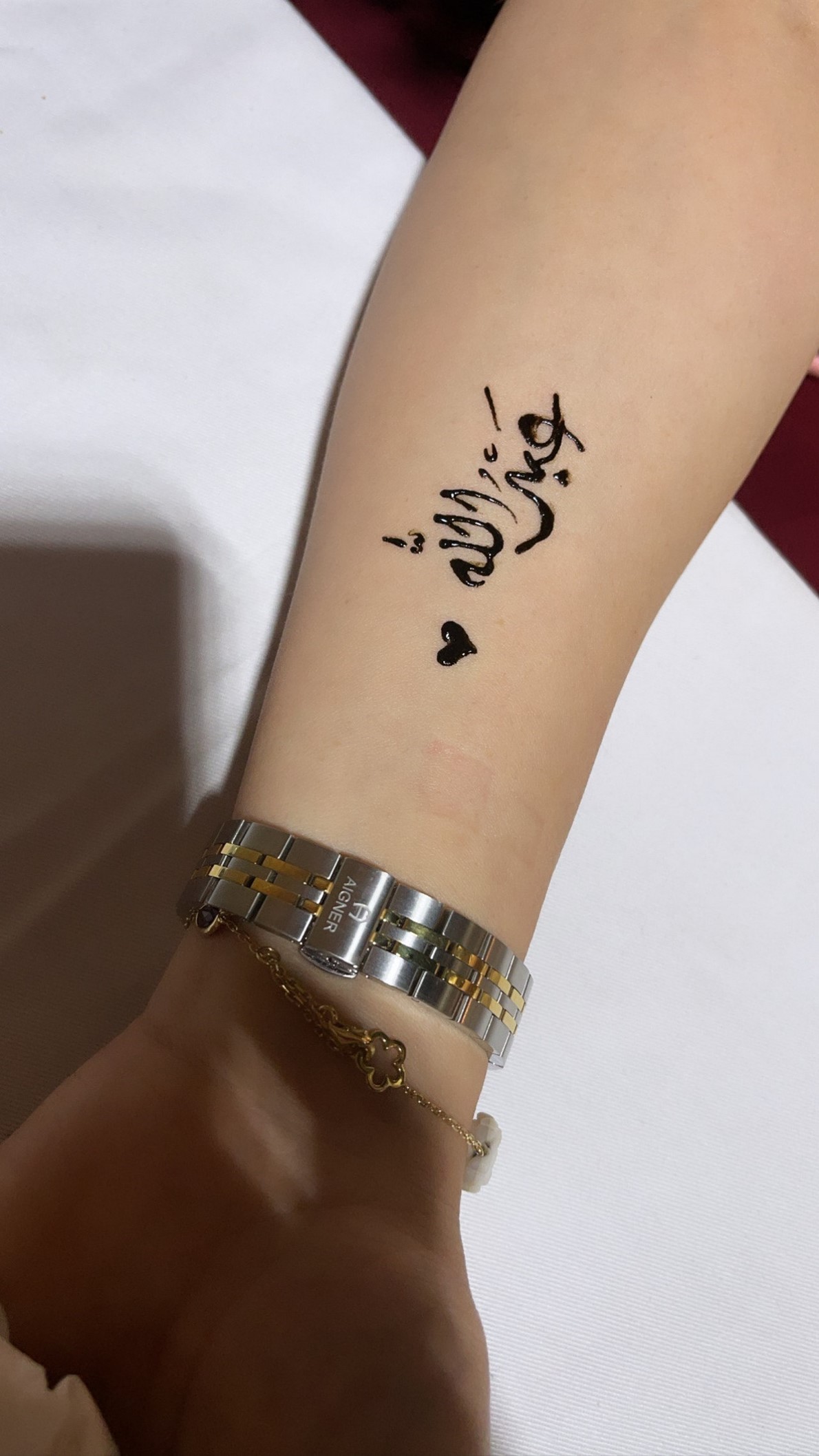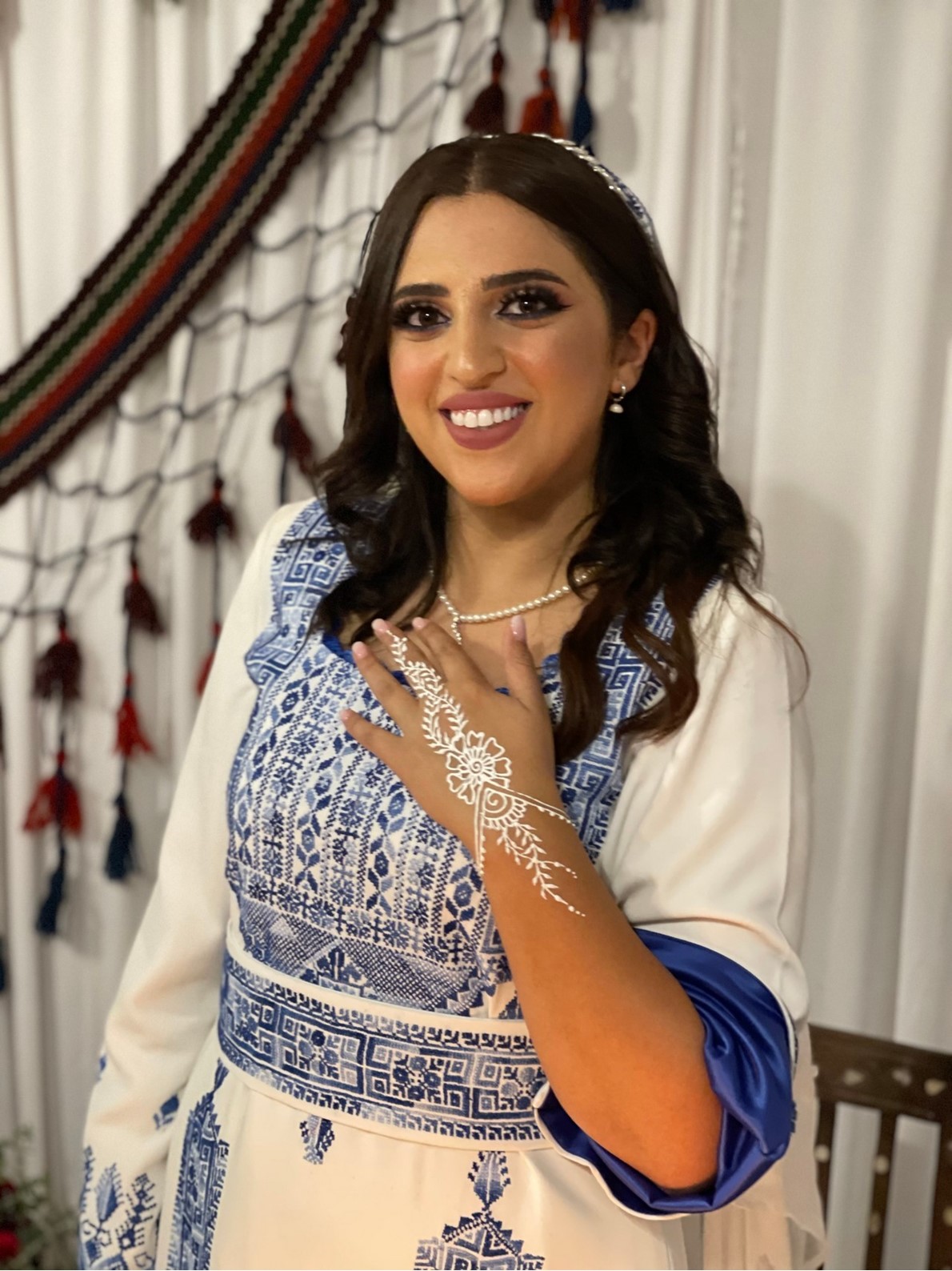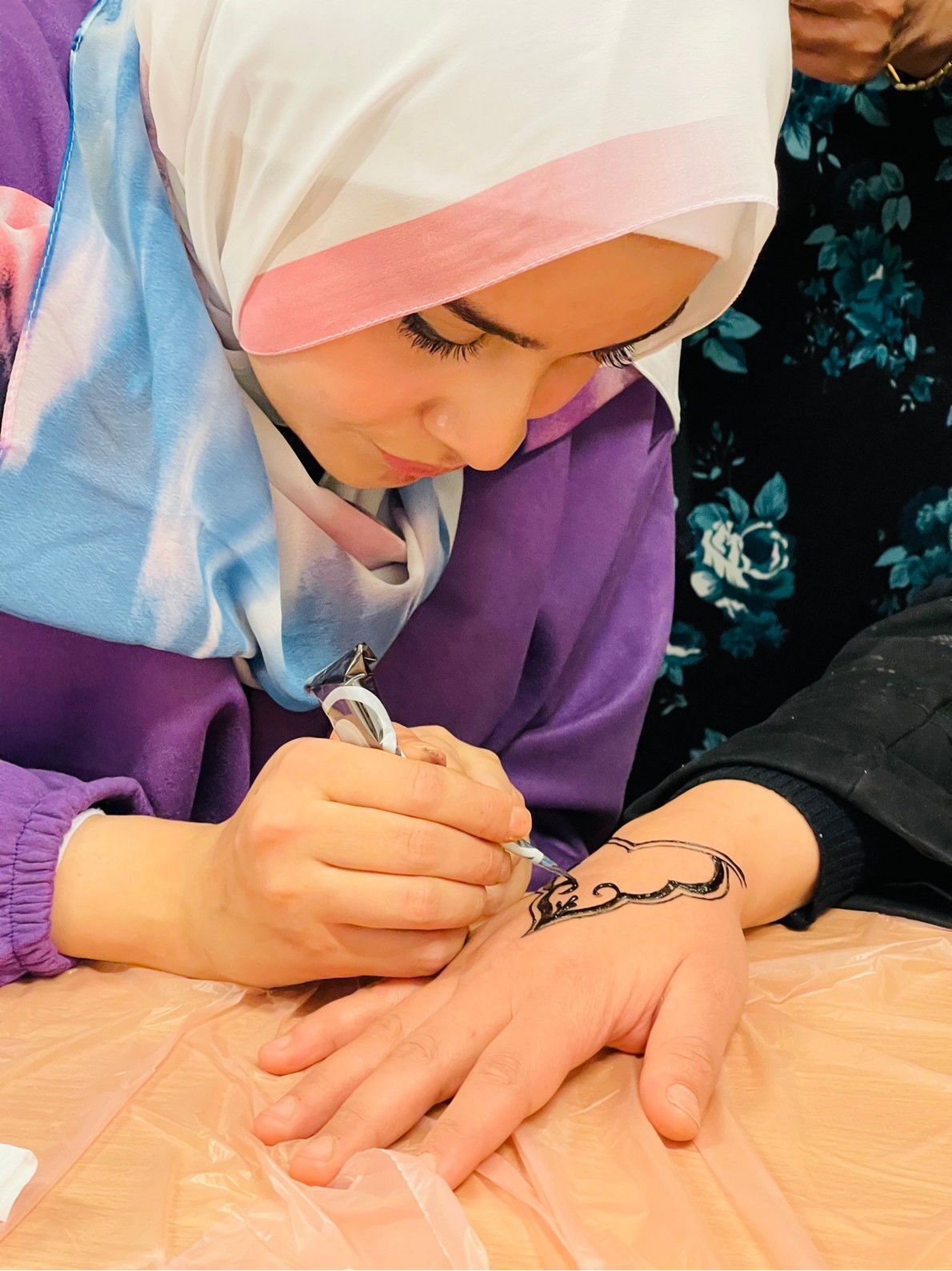While henna has recently been making its mark in the beauty
industry as temporary tattooing, a henna artist is inspiring the art of
self-expression with a multifaceted approach that balances folklore and
modernity.
اضافة اعلان
Zein Al-Sharaf Al-Khdour has more than six years of
experience working with
henna, with all its simultaneous simplicity and endless
complexity; sharp against soft and simple beside complex. Khdour has created a
customer following that is growing by the day, with over 30,000 followers on
Instagram and 9,000 on her offset henna account.
“I was big on drawing since my childhood, and I used to draw
on my hands using eyeliner and come up with intricate patterns, but it never
grew into anything more than a drawing. When I was 18, my personal trainer’s
wedding was approaching and she was in search of a henna artist, and I put
myself up for it. As fate would have it, she loved it and she suggested to channel
my energy after finishing my high school examinations,” Khdour told
Jordan
News.

After securing a spot in an architecture school,
Khdour realized how costly the fees, tools, and materials are and set out to secure a
small income to cover her college expenses. Back in the days, when she did not
have an audience, she could be found in a corner of a different university each
Thursday offering to apply a henna pattern to individuals whose hands would
become her canvas.
Khdour is self-taught; she does not spend a day without
exploring the deep lore of henna. She did her own research, testing, and
experimentation, and developed techniques, patterns, and recipes for making
high-quality henna paste and designs.
“I tested several products and brands of henna on my hands
until I had the ones that give the best results. I started to observe that my
major is contributing to the overall quality of my henna work and is giving me
a leg up in terms of precision, understanding proportions, and mastering
control over my hand and my nerves,” Khdour elaborated.

She draws from the well of heritage and folklore, retaining
a strong sense of a shared identity, but also ventures into the ultra-modern to
accommodate the diverse tastes of her clients.
Using henna to create art, according to Khdour, is personal
and heavily influenced by a person’s preferences. As a symbol of beauty, it
should be designed for everyone, regardless of their preferences.
Her patterns are influenced by the visual and tactile
elements of the different canvases – hands – she works on .

She is busiest when the wedding season is in full swing.
Henna bachelorette nights are a niche for henna artists like Khdour, as the
hands of brides-to-be usually have the most extensive fine-line work. While
celebrating the days of the past when she was single, the bride is not the only
one who gets a henna pattern; the guest list is a total girl power.
Henna comes in a variety of colors, though black is the most
common; as an artificial henna, it contains stabilizers and dries quickly, as
opposed to the natural red-burgundy henna, which is made from the dried leaves
of the Lawsonia inermis shrub, which binds the pigment to the keratin in the
skin and safely stains it. Another variety is a newly introduced white henna,
which is not henna at all, but an adhesive body paint that looks and feels like
henna and stays on the upper layer for a limited set of time.

“White henna tends to come off faster than other varieties
of henna, making it ideal for photo shoots and bridal henna. Once the white
layer peels off, it is absolutely gone,” Khdour explained.
Henna opens up such a vast world that practice is the only gateway to it. I prefer to simplify the centuries-old application process gone-contemporary by teaching participants how to make henna from scratch ...
Her passion for henna art has gained her a wealth of
knowledge and expertise using a variety of media and techniques. She believes
in passing out knowledge and a piece of her culture to others, which she
currently does through her henna classes.
“Henna opens up such a vast world that practice is the only
gateway to it. I prefer to simplify the centuries-old application process
gone-contemporary by teaching participants how to make henna from scratch, form
a dark green paste, allow it to mature and oxidize and roll out application
cones, as well as how to deal with clients, set a price point, and select the
best pattern to match the hand’s personality,” Khdour added.

While there is much room to grow within the beauty industry,
the elaborate motifs that accentuate hands started to spark the imagination of
henna artists, making them eager to apply henna to other parts of the body,
whether to camouflage a scar or tattoo a pregnant belly, depending on the
customer’s taste and preference.
Read more Fashion
Jordan News










